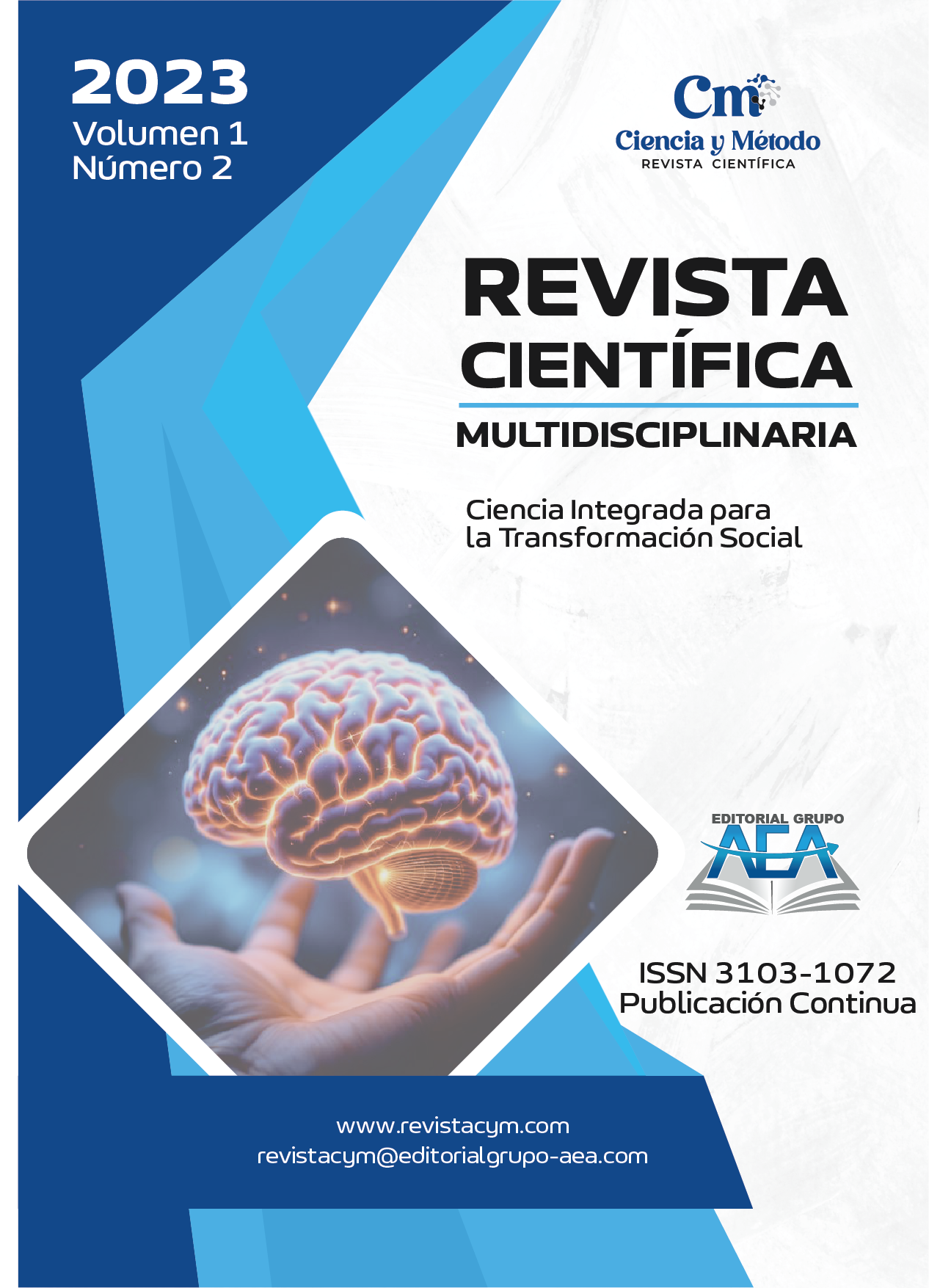Ethical challenges in the adoption of emerging technologies in accounting
Main Article Content
Abstract
The study critically analyzes the ethical challenges arising from the incorporation of emerging technologies in accounting practice, in a context where digitization redefines key processes such as auditing, financial analysis and transaction recording. Through a systematic literature review of academic literature indexed in Scopus and Web of Science between 2015 and 2024, the authors identify relevant ethical dilemmas such as the lack of algorithmic transparency, risks on the confidentiality of financial data, and undue delegation of responsibilities to automated systems. The results evidence a disconnect between technological developments and existing regulatory frameworks, as well as insufficient professional training in digital ethics. The discussion delves into the implications of these gaps, warning about the possible deprofessionalization of accountants and the subordination of ethical principles to the logic of efficiency. It is concluded that it is urgent to update professional codes of ethics, redesign academic training and promote a critical culture that allows managing technological innovation from a responsible and sustainable ethical perspective.
Downloads
Article Details
Section

This work is licensed under a Creative Commons Attribution-NonCommercial 4.0 International License.
How to Cite
References
Appelbaum, D., Kogan, A., & Vasarhelyi, M. A. (2017). Big Data and analytics in the modern audit engagement: Research needs. Auditing: A Journal of Practice & Theory, 36(4), 1–27. https://doi.org/10.2308/ajpt-51684 DOI: https://doi.org/10.2308/ajpt-51684
Binns, R., Veale, M., Van Kleek, M., & Shadbolt, N. (2018). ‘It’s Reducing a Human Being to a Percentage’: Perceptions of Justice in Algorithmic Decisions. Proceedings of the 2018 CHI Conference on Human Factors in Computing Systems, 1–14. https://doi.org/10.1145/3173574.3173951 DOI: https://doi.org/10.1145/3173574.3173951
Burrell, J. (2016). How the machine ‘thinks’: Understanding opacity in machine learning algorithms. Big Data & Society, 3(1), 1–12. https://doi.org/10.1177/2053951715622512 DOI: https://doi.org/10.1177/2053951715622512
Casanova-Villalba, C. I. (2022). Desafíos en el crecimiento empresarial en Santo Domingo: Un análisis de los factores clave en el periodo 2021-2022. Journal of Economic and Social Science Research, 2(3), 1–12. https://doi.org/10.55813/gaea/jessr/v2/n3/53 DOI: https://doi.org/10.55813/gaea/jessr/v2/n3/53
Casanova-Villalba, C. I., & Hurtado-Guevara, R. F. (2023). Auditoría fiscal y evasión tributaria mediante un enfoque sustentado en evidencia empírica reciente. Multidisciplinary Collaborative Journal, 1(1), 39-51. https://doi.org/10.70881/mcj/v1/n1/10 DOI: https://doi.org/10.70881/mcj/v1/n1/10
Cerviño, A. (2022). Ética profesional ante la digitalización: una revisión crítica desde la contabilidad. Revista Española de Contabilidad y Finanzas, 42(2), 145–164.
Damerji, H., & Salimi, M. (2021). Review and analysis of the emerging technologies and trends in accounting. Journal of Accounting and Organizational Change, 17(4), 564–591.
García Moreno, E., & Sanchez Balcázar, M. del C. (2023). EFECTOS DE LA APLICACIÓN DE LA INTELIGENCIA ARTIFICIAL EN LA CONTABILIDAD Y LA TOMA DE DECISIONES. GESTIÓN, 1(1). Recuperado a partir de https://revistap.ejeutap.edu.co/index.php/Gestion/article/view/71
García-Vera, Y. S., Juca-Maldonado, F. X., & Torres-Gallegos, V. (2023). Automatización de procesos contables mediante Inteligencia Artificial: Oportunidades y desafíos para pequeños empresarios ecuatorianos. Revista Transdiciplinaria De Estudios Sociales Y Tecnológicos, 3(3), 68–74. https://doi.org/10.58594/rtest.v3i3.93 DOI: https://doi.org/10.58594/rtest.v3i3.93
Herrera Sánchez, M. J., Casanova Villalba, C. I., Mendoza Armijos, H. E., Rivilla Requelme, S. E., & Cevallos Farías, J. J. (2021). El Crédito de Desarrollo Humano como estrategia de la Economía Popular y Solidaria para combatir la pobreza. Visionario Digital, 5(1), 52-69. https://doi.org/10.33262/visionariodigital.v5i1.1540 DOI: https://doi.org/10.33262/visionariodigital.v5i1.1540
International Ethics Standards Board for Accountants (IESBA). (2020). Handbook of the International Code of Ethics for Professional Accountants (Including International Independence Standards). International Federation of Accountants.
Jarrar, H., & Rahman, R. (2023). Accounting education in developing countries: Bridging the digital and ethical gaps. International Journal of Accounting and Information Management, 31(2), 203–219.
López-Pérez, P. J., Casanova-Villalba, C. I., & Muñoz-Intriago, K. R. (2022). La Evolución de la Contabilidad Ambiental en Empresas Ecuatorianas. Revista Científica Zambos, 1(3), 44-59. https://doi.org/10.69484/rcz/v1/n3/32 DOI: https://doi.org/10.69484/rcz/v1/n3/32
Mirabal Luciano, A. G., Martínez Prats, G., Guzmán Fernández, C., y Vázquez Vidal, V. (2024). Desafíos éticos en la Contabilidad: perspectivas, prácticas y soluciones. Negonotas Docentes, (23), 1-9. https://doi.org/10.52143/2346-1357.986
Power, M., & Gendron, Y. (2021). Professionalism and ethics in accounting in the age of intelligent automation. Accounting, Organizations and Society, 90, 101255.
Richins, G., Stapleton, R. C., Stratopoulos, T. C., & Wong, C. (2017). Big Data Analytics: Opportunity or Threat for the Accounting Profession? Journal of Information Systems, 31(3), 63–79. https://doi.org/10.2308/isys-51805 DOI: https://doi.org/10.2308/isys-51805
Vasarhelyi, M. A., Kogan, A., & Tuttle, B. M. (2015). Big Data in Accounting: An Overview. Accounting Horizons, 29(2), 381–396. https://doi.org/10.2308/acch-51071 DOI: https://doi.org/10.2308/acch-51071
Westhausen, M. T., Heiden, S., & Hinz, O. (2021). Ethical Challenges of Blockchain in Accounting and Auditing. Business & Information Systems Engineering, 63(6), 551–565.





